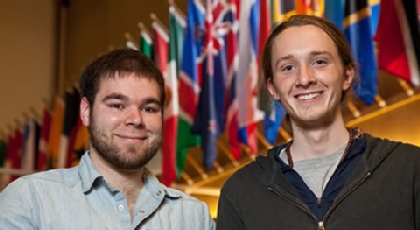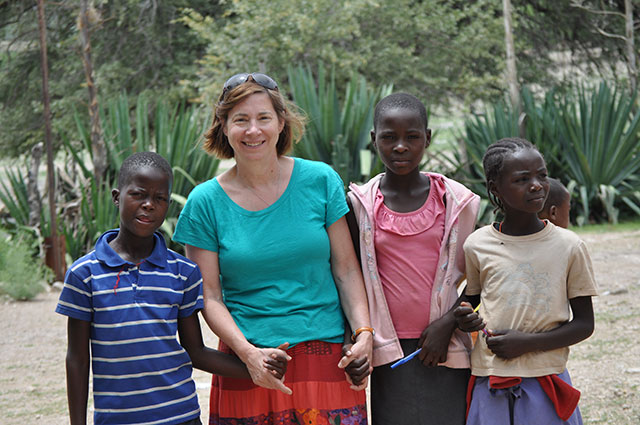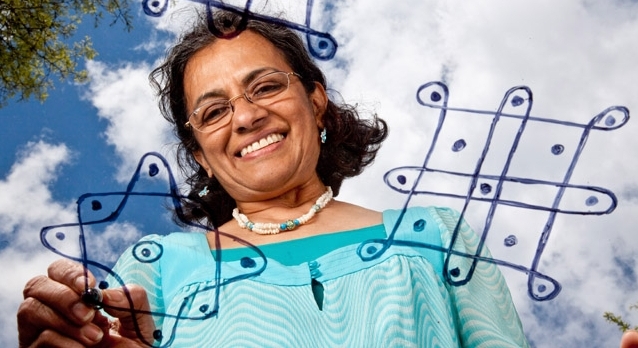Page 12 • (441 results in 0.03 seconds)
-

race studies. Chan’s capstone project documents the farmers’ lifestyle, struggles, culture, and significant contributions to the area’s most iconic destination—the Pike Place Market. Chan’s film will highlight a full growing season with the farmers. “Pike Place Market is such a central hub and has such an impact on our Washington community,” says Chan. “The market would not be as vibrant and iconic if it weren’t for Hmong farmers and all other Asians who were there before. I have a new respect for
-

return to southern Africa and to fully immerse myself into a new community and culture,” Meyer said. Matthew Anderson – English teaching assistant in Germany Anderson pursued a fellowship as a teaching assistant in Germany because of a love learning and excitement to share what he’s learned about himself, his culture and his country with eager young minds, as well as encourage them to engage in learning. “Right now, that is my passion,” he said, “and I think that this particular Fulbright Fellowship
-
aroma. The students will learn that the Makah can make just about anything out of cedar and have for hundreds if not thousands of years, from a bracelet to a canoe that’s able to navigate the ocean. This is just one of the activities the PLU students learn at the Makah Indian Reservation on Neah Bay on the Washington coast. This January, 15 students spent 12 days with anthropology professor Dr. Dave Huelsbeck immersing themselves in the unique American Indian Culture. “Books can only get you so far
-
May 18, 2009 Off to China Blending the Chinese tale of Monkey with an original musical composition comes natural for PLU Music Professor Greg Youtz. The guy is not only a well-respected composer, but learning about and engaging the Chinese culture is a passion of his. “My head is constantly full of China,” he said about a love of a culture that began nearly 25 years ago and has since included many trips to the country. Getting a chance to take PLU music students to China is a perfect blend of
-

to Namibia as a Fulbright-Hays scholar, returning to the country in 2011-13 as a co-leader in J-Term comparative education courses. “I knew my first trip to Namibia transformed me,” she said. “I still am unable to totally articulate the transformation, but I know I was a different person when I returned. Each time I journey to Namibia I become increasingly comfortable in a culture that is so different from what I know or knew.” Namibia was under South African rule, and apartheid laws, until just
-
counterproductive to the learning process. The proficiency model, on the other hand, while parading as a “neutral” contextualization of language, can perpetuate a male-biased, heterosexist, often racist and classist view of culture. Concomitantly, the goal of achieving competency often reinforces exclusionary cultural norms. This emphasis on contextualized, conversational usage fails to ask whose conversational agenda is being taught; for example, conversations about sports are more frequently offered as models
-
-edge topics that will both inform and inspire teachers and students alike. One unique opportunity will be the presence of the iVasi system, which is an audio-visual presentation of an orchestral playing situation. Hornists can play along with a recording of an orchestra while watching a conductor on the screen. This is about as close as one can come to getting practice as an orchestral horn player without actually practicing with an orchestra. Read Previous Opening a window, when the door goes
-

Bible, is required to select a passage from the Hebrew Bible and demonstrate its importance by re-creating the passage in a contemporary manner. “What I’m doing differently is, instead of writing a paper, I’m asking students to give me their arguments in a visual form where it could be understood in 2015,” Finitsis said. The Lutes write, direct, act, edit and shoot their films before premiering them in class. Finitsis then invites the students with the highest-quality videos to enter the Hebrew Idol
-

designs and, each day, endeavor to design something more elaborate, more beautiful. Thirumurthy uses the kolam to describe something else – something for which she earned a prestigious Fulbright U.S. Scholar Program grant to study in her native India. She uses the kolam to describe what is called “funds of knowledge” – the idea that children, especially young girls, gain knowledge not simply in the classroom, but through their family and their culture. In the case of the kolam, children learn not just
-
May 27, 2008 Hughes encourages classmates to be global citizens President Anderson, Faculty and Staff, Representative from the Ministry of Community Development, Culture and Gender Affairs, Family and Friends, invited guests, and fellow graduates, Good Afternoon. It gives me great pleasure to stand before you today as a representative of the graduating class of 2008. I am overwhelmed and overjoyed. College…the adventure into a dark tunnel. A space filled with papers, deadlines, challenges
Do you have any feedback for us? If so, feel free to use our Feedback Form.


